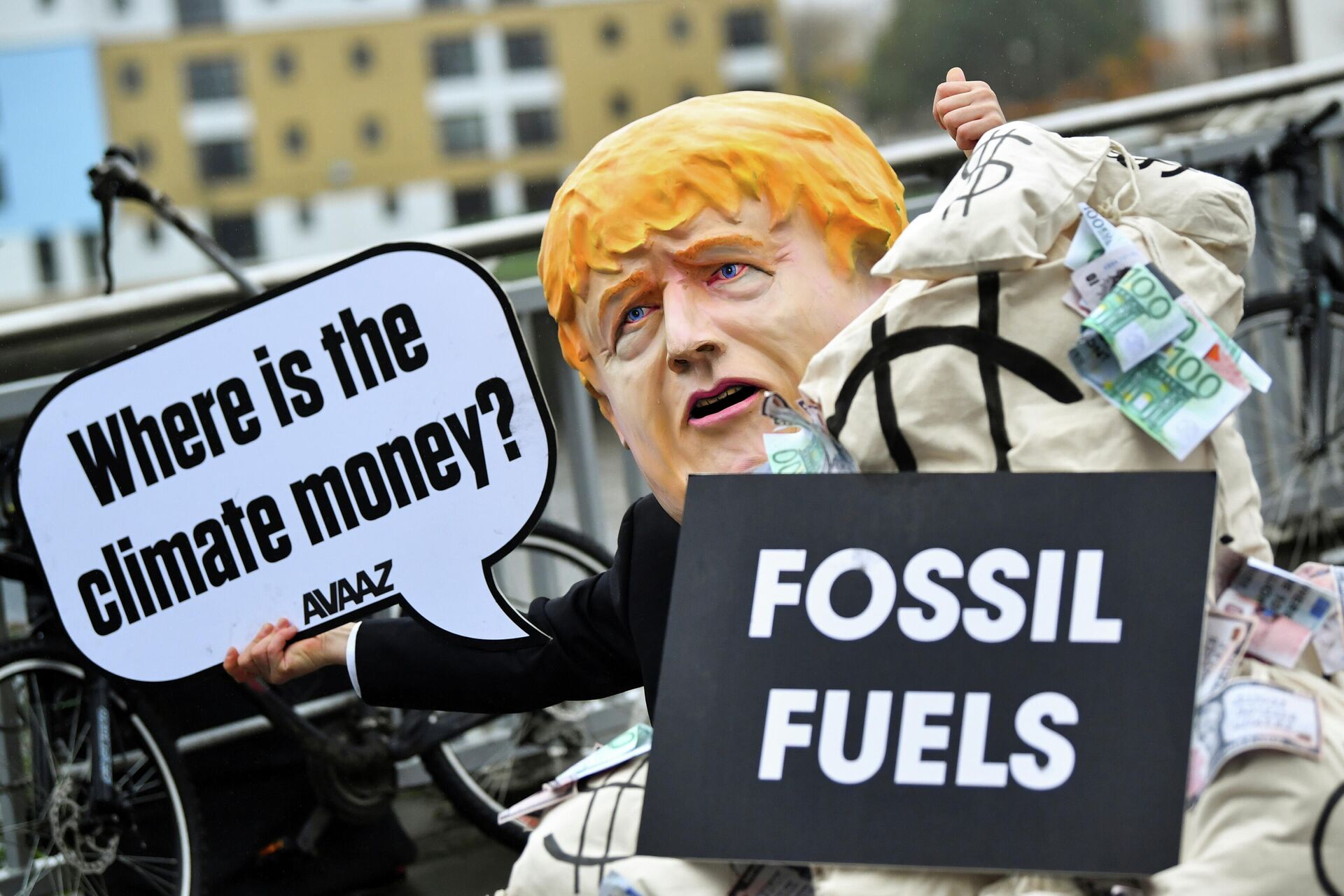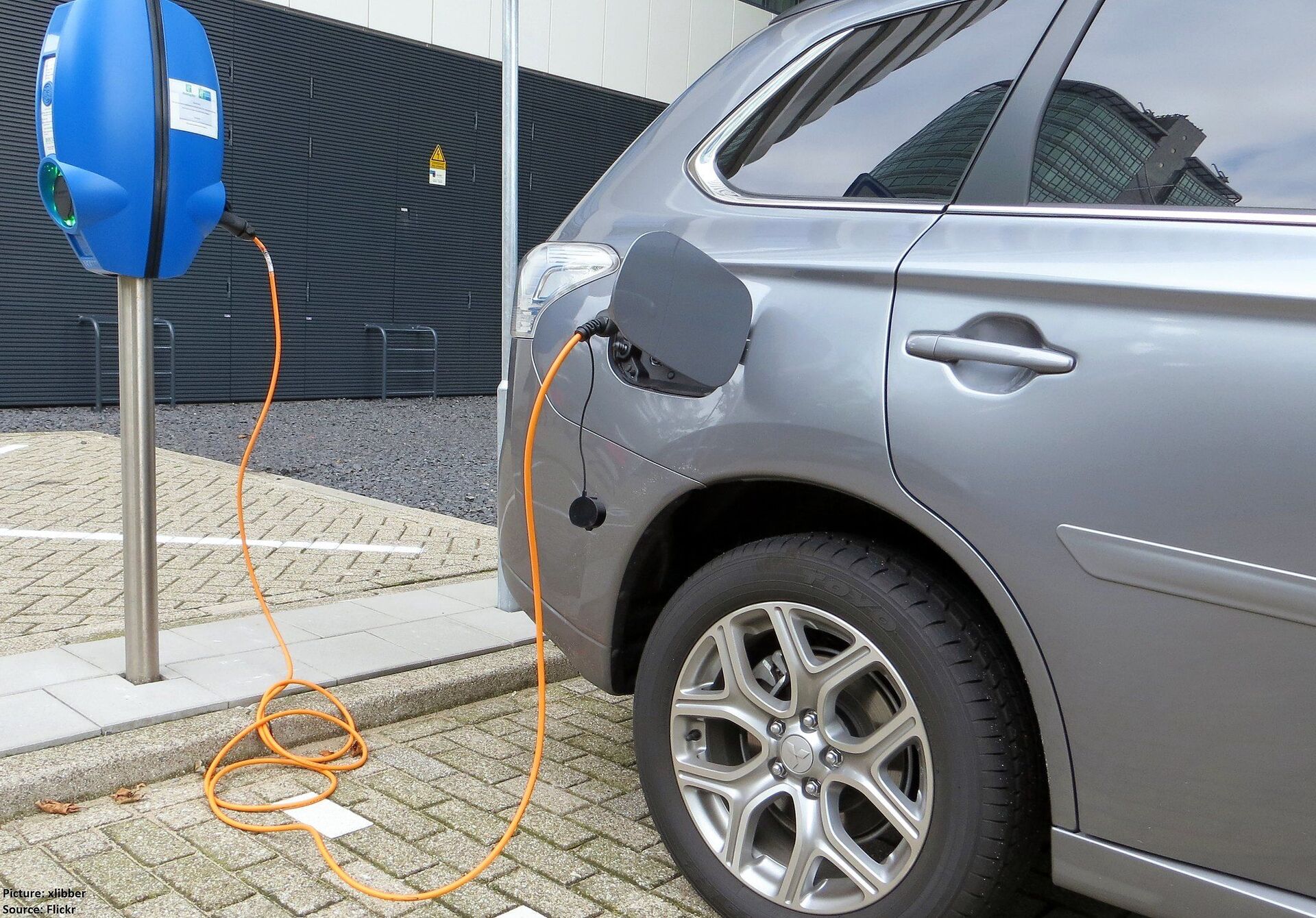Fossil Fuel Companies Claim They’re Leading Clean Energy Charge After Decades of Fighting It
20:27 GMT 16.11.2021 (Updated: 20:28 GMT 16.11.2021)

© Flickr / EPI2oh
Subscribe
In the wake of the UN climate summit in Glasgow, the world’s major gas and oil companies are on the defensive. At their own forum in the United Arab Emirates, their CEOs insisted they are actually leading the transition to green energy. However, those same companies spent decades hiding global warming and smothering green energy plans.
“We just have to get the opportunity to explain what we’re doing and to make the case that it’s not about fossil fuels. It’s about the emissions,” Vicki Hollub, president and CEO of Texas-based Occidental Petroleum, said at the Abu Dhabi International Petroleum Exhibition and Conference (ADIPEC) on Monday.
“And as long as we can to deal with the emissions and help others that use the products deal with the emissions too, then we have the right to be here,” she added, according to CNBC, which hosted the event. “We have the right to provide the quality of life that oil and gas has provided ... for the current rich countries, and we need to allow the developing countries the same right to become wealthier through the development of their natural resources.”
Bernard Looney, CEO of BP, similarly defended the notion that hydrocarbon fuels like coal, oil, and natural gas would continue to play a major role in the energy market for years to come.
“We have to be very, very clear on what our objective is when we begin any dialogue in this space. And our objective is in this conversation about driving emissions down,” he said. “Now that for some people is unacceptable, because that means that hydrocarbons are part of the mix. This is simply a system that has been in place for decades and decades and decades. It’s called an energy transition for a reason. There is no light switch. It doesn’t happen overnight.”
“It’s going to be natural gas, it’s going to be solar, it’s going to be wind, it’s going to be hydrogen, it’s going to be nuclear ... What a company like ours, not just ours, but a company like ours can do, it can knit together two different forms of energy to give customers what they want,” he added.

A person wearing a mask depicting Britain's Prime Minister Boris Johnson protests during the UN Climate Change Conference (COP26) in Glasgow, Scotland, Britain November 12, 2021
© REUTERS / DYLAN MARTINEZ
Their remarks come after the United Nations-hosted COP26 summit in Glasgow, UK, that was billed as the world’s last major chance to reach an international agreement on curbing the burning of pollutive fuels like fossil fuels sufficient to limit global warming to a 1.5 degree-Celsius increase. Burning the fuels releases gases like carbon dioxide and methane into the atmosphere, which causes a “greenhouse” effect that traps the sun’s heating rays and causes the planet’s surface temperature to increase.
At the COP26 summit, nearly 200 countries signed pledges to slash methane emissions, the use of fossil fuels and government subsidies for the industry, and deforestation, while richer nations also pledged to help poorer countries finance their transition off coal in particular, the most pollutive fossil fuel.
Those pledges follow agreements by more than 40 nations made in April at a separate summit organized by US President Joe Biden at which the world’s leading users of fossil fuels pledges to dramatically curb their carbon emissions in the next few years.
Carrying a high amount of energy for their weight and existing in relative abundance, fossil fuels served as the basis for industrialization, particularly in Europe and the United States. The private firms that arose from the mining, processing, and sale of those fuels became some of the world’s largest and most powerful corporations, exerting a powerful influence on government policies and even driving overseas wars for more and cheaper sources.
Today, amid a change in popular consciousness about global warming driven by human actions, they have positioned themselves as willing to invest major capital into other energy sources like solar and wind power. But historically, gas and oil corporations have worked to camouflage the destructive effects of their industry and prevent the rise of alternative energy sources that could threaten their profits.
Oil Giants Hide Global Warming
In recent years, documents have emerged showing that many of the world’s petroleum corporations knew about the greenhouse effect of the carbon their products released into the atmosphere, as well as their potential to increase the planet’s surface temperature, destroying ecosystems, melting ice caps and throwing the human-supporting climate into chaos.
In the 1970s, US companies like Exxon, Texaco, Shell, and Gulf Oil were all part of an American Petroleum Institute task force on carbon dioxide to keep track of the latest scientific developments in the field, and each corporation also maintained their own secret programs as well.
As Scientific American reported, Exxon knew in 1977 that humanity needed to act within a decade in order to head off serious changes in the climate due to carbon emissions. In 1982, the company produced a 40-page report for its leadership predicting catastrophic climate effects from the continued use of their fuels. The report was buried until being uncovered by journalists in 2015.
French oil giant Total has known since 1971, according to ZME Science, and Shell realized in 1988 that global warming posed a threat to its business model. In each case, the predictions of oil giants were remarkably in line with those of present-day climate scientists.
However, instead of acting, the companies invested in disputing warnings about climate change that appeared elsewhere, forming groups like Global Climate Coalition to raise doubts about the science and funding think tanks to do the same.
The same happened with technologies like electric vehicles (EVs), which are now being championed as the key to reducing the burning of gasoline in automobiles. For decades, electric cars remained too expensive to compete with gas-powered cars so long as gas prices remained low, but in the 1990s, new pressures arose that seemed to give EVs a fighting chance.
In 1990, California’s Air Resources Board (CARB) implemented a zero-emissions mandate that required the country’s major automakers to offer EVs in order to continue selling gas-burning cars in the Golden State. Many then began offering several EV models, but also purposefully stifled research on better EV technology, such as longer-lasting batteries and better acceleration, through the US Auto Battery Consortium they formed.
US oil giants opened a full broadside against the effort, with the Western States Petroleum Association lobbying group beginning a campaign against the mandate and astroturfing the group Californians Against Utility Company Abuse, which presented industry concerns as if they were those of unaffiliated private residents.
In 1994, General Motors bought a startup called Ovonics Battery Company that was developing a nickel metal hydride battery powerful enough to use in an EV, but never used it in its own car and eventually sold the company and its patents to Texaco-Chevron in 2000, which used intellectual property laws to stop the manufacturing of plug-in NiMH batteries in automobiles.
"I think we at ECD [Energy Conversion Devices, Ovonics’ parent company] made a mistake of having a joint venture with an oil company, frankly speaking,” inventor Stanford Ovshinsky told The Economist in 2006. “And I think it's not a good idea to go into business with somebody whose strategies would put you out of business, rather than building the business."




